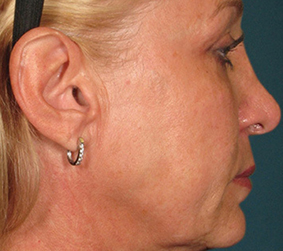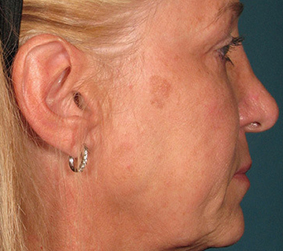Other Dermatological Conditions
Get Help With Rashes, Vitiglio, and More at South Shore's South Coast Dermatology
Actinic Keratosis
Actinic Keratosis (AK) is a precancerous lesion of the skin caused by prolonged and repeated sun exposure. AKs are usually found on the face, ears, trunk, forearms, and back of hands. If this dermatological condition is left untreated, it may become a form of skin cancer known as squamous cell carcinoma. Early treatment—frequently by cryosurgery, topical medications, or specialized light—can eliminate AKs while they are only precancerous. Prevention includes sun avoidance and protection with UVB/UVA sunscreens, as well as regular check-ups with a dermatologist to monitor the dermatological condition.
Contact Dermatitis
Contact dermatitis is a common dermatological condition caused by allergy or irritation from a specific exposure, such as poison ivy. Other causes include metals such as nickel, cosmetics, or topical preparations. This condition is treated with topical or occasionally oral steroids. In-office allergy patch tests can be done to determine the cause of the dermatitis in some cases.
Send a message online today to set up a consultation to discuss any of a number of dermatological conditions in Weymouth, the South Shore, and all of Massachusetts at South Coast Dermatology. Call 781.335.9700 for more information.
Dysplastic Nevi
Dysplastic nevi (atypical moles) are moles that usually start off as benign. There are different levels of atypia in these moles, ranging from mild to severe, which can put a patient at higher risk of developing melanoma. Detection of this dermatological condition is best done by a biopsy to determine the level of atypia. Treatment, if required, can be as simple as close observation or surgical excision, depending on the degree of atypia.
Rashes
"Rash" is a general term for a wide variety of dermatological conditions. A rash refers to a change that affects the skin and usually appears as a red patch or small bumps or blisters on the skin. Most rashes are harmless and can be treated effectively with over-the-counter anti-itch creams, antihistamines, and moisturizing lotions.
Wrinkles
Wrinkles are less a dermatological condition and more a natural part of the aging process. They occur most frequently in areas exposed to the sun, such as the face, neck, back of the hands, and forearms. Over time, skin gets thinner, drier, and less elastic. Ultimately, this causes wrinkles—either fine lines or deep furrows. In addition to sun exposure, premature aging of the skin is associated with smoking, heredity, and skin type (higher incidence among people with fair hair, blue eyes, and light skin). Since wrinkles are not a medical dermatology issue, they can be treated with cosmetic dermatology.
Vitiligo
Vitiligo is a disease in which the pigment cells of the skin, melanocytes, are destroyed in certain areas. Symptoms and signs of this dermatological condition include loss of skin color in the form of de-pigmented, or white, patches of skin in any location on the body. Vitiligo can be focal and localized to one area, or it may affect several different areas on the body. The exact cause of vitiligo is unknown, although most experts believe that it is more than a dermatological condition, and is in fact an autoimmune condition in which the body's immune system mistakenly attacks and destroys certain cells within the body. Vitiligo is sometimes associated with other medical conditions, including thyroid dysfunction.
Get help with dermatological conditions at South Coast Dermatology, serving the South Shore and beyond in Massachusetts. To arrange a consultation, send a message online. Call 781.335.9700 for more information.


























